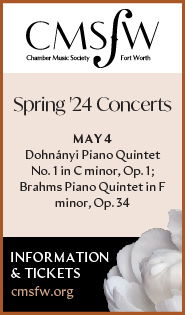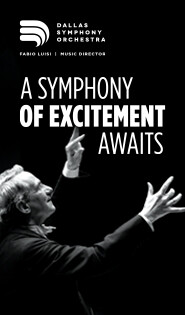Houston Symphony lets freedom ring with Beethoven’s “Fidelio”

Beethoven’s opera “Fidelio” was performed by the Houston Symphony Friday night at Jones Hall.
A semi-staged version of the opera Fidelio completed the Beethoven cycle begun by Andrés Orozco-Estrada and the Houston Symphony more than two years ago.
Thursday night, Jones Hall was transformed into an opera house, aided by a modified stage and special lighting effects. The production, which included a narrator, seven vocal soloists and the Houston Symphony Chorus, was directed by Tara Faircloth.
Beethoven’s sole opera, Fidelio was originally titled “Leonore, or the Triumph of Marital Love.” It is the story of a woman who disguises herself as a man (Fidelio) to rescue her husband Florestan from death in a political prison. It incorporates two of Beethoven’s deeply held beliefs– marital devotion and freedom– and retains its strong moral and humanistic value, with Leonore showing the loftiest heroism in liberating her husband. A subplot has the kind-hearted jailor’s daughter Marzelline rejecting her suitor Jaquino and taking an interest in “Fidelio,” the disguised Leonore.
Raised platforms at the back of the stage and in front of the orchestra carried the semi-staged action with projected surtitles allowing the audience to follow the action.
Bizarrely, director Faircloth decided to jettison the original German dialogue because she believes “it is very difficult for American audiences to listen to.” Instead she replaced it with quotations drawn from iconic speeches, poetry and literature by J. R.R. Tolkien, Gandhi, and Nelson Mandela among others. These were all expertly read by actress Phylicia Rashad, but unfortunately, her loudly amplified narration made the singers’s natural voices sound small in comparison.
Following the overture, Lauren Snouffer as Marzelline and Joshua Dennis as Jaquino provided a brightly appealing start to the evening in their duet. Their duo was an enjoyable beginning to the opera. Snouffer’s soprano was bright and bubbly and she shined as Marzelline, making it easy to see why Jaquino was taken with her. Dennis was believable as the pining suitor and his voice had a youthful timbre to match. In Marzelline’s aria “O wär ich schon mit dir vereint,” Snouffer showed a lyrical line enhanced by a well-modulated vibrato.
As Rocco, Nathan Stark had an endearing quality perfect for the role of the kind-hearted jailer and father of Marzelline. He combined clear diction and assured acting with a powerful bass that easily projected over the orchestral accompaniment.
Making his Houston Symphony debut, Russell Thomas provided the evening’s high points as Florestan. Emerging from a darkened corner of the stage Thomas began his aria, “Gott! Welch Dunkel hier!” seated and in chains. Showing superb vocal control, he entered pianissimo on a high B-flat, making a crescendo as the line descends. Thomas portrayed with compelling emotion the anguish of the imprisoned protagonist, bringing hair-raising intensity to Florestan’s distressed state of mind in the middle section.
In the leading role of Leonore, Rebecca von Lipinski was a bit covered in her vocal projection and restrained in her acting throughout much of the evening. She has a lovely soprano that would have benefitted from more drama in the delivery. Her character’s resolve was not effectively communicated until her Act Two duet with Florestan and the opera’s finale. Here, her vocal brilliance and subtle acting finally emerged.
Alfred Walker’s portrayal of the sinister Don Pizarro was effective, and he added to the vocal and acting strengths of the cast. Andrew Foster-Williams presented solid singing and projected a regal air in the role of Don Fernando.
The men of the Houston Symphony Chorus sang the Prisoners’ chorus, “O welche Lust” with their customary polish, though the concept of being free was somewhat undermined by their being bound to the scores in their hands. The women of the chorus joined the men in the jubilant finale.
The Houston Symphony, led by Orozco-Estrada, played with polish and energy throughout. The stage setup contributed to occasional balance issues within the orchestra, with the winds covering details in the first violin part, with the exception of a one ragged beginning. The French horns were immaculate in Leonore’s aria, “Komm, Hoffnung, lass den letzten Stern, and oboist Jonathan Fischer was intimately expressive in Florestan’s Act Two aria.
Fidelio will be repeated 2 p.m. Sunday. houstonsymphony.org


